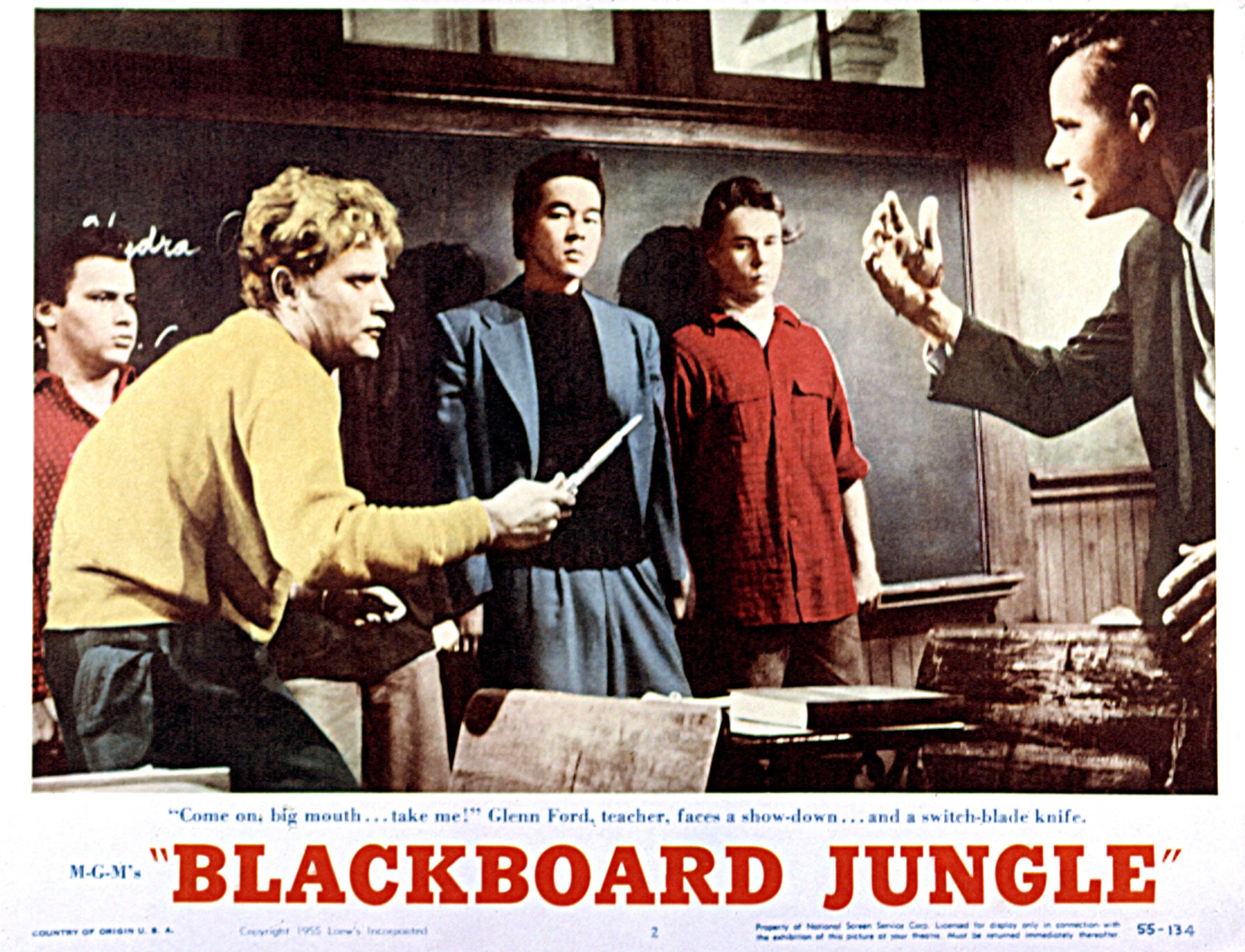Molly: “Gigi, where the … you going to school next year?”
Gigi: “Don't judge me. It was my fifth choice: Harvard.”
You might recognize these lines from the 2019 comedy film, Booksmart. It’s just one of the many amusing pieces of dialogue that sparks laughter and discussion in the new cinema studies First-Year Foundations course at Innis College, School Daze.
“Students learn how to do close reading of films, and how to talk about films in different registers,” said Nicholas Sammond, a course instructor at the Faculty of Arts & Science’s Cinema Studies Institute. “Each week we watch a film, write about some aspect of that film and share our work.”
Sammond chose to focus on films about the transition from high school to college or university to give students an immediate connection.
“Most of my students are just out of high school so that experience is very fresh,” says Sammond. “This is the beginning of them trying to understand themselves as university students, so I thought these films would resonate.”
“It felt sort of poetic to take a film class about school during my first year of film school... I think this class will be one of the most helpful classes I end up taking for what I want to pursue in my future film career.
They certainly have for Soren Stancliff, a first-year cinema studies student and a member of Victoria College.
“It felt sort of poetic to take a film class about school during my first year of film school,” he says. “I was on the waitlist to get into this class, so I was so stoked when I finally made it in.

“I’m learning what tropes do and don’t work. I think this class will be one of the most helpful classes I end up taking for what I want to pursue in my future film career.”
Sammond, a cultural historian of film and media, as well as the director for the Centre for the Study of the United States at the Munk School of Global Affairs & Public Policy, selected films that portray school life in a variety of ways.
“Some are about schools as refuge from a bad situation in one's home life,” he says. “Some are about schools as oppressive institutions that keep you back from realizing your true self.”
Others spark conversations about race, gender and socialization within a school’s walls and halls.
“We tend to forget that one of school’s functions is socialization,” says Sammond. “We focus on educational achievement and the possibility of getting jobs, but many people believe that schools are where citizens are produced.”
The class screenings include the 1968 film If… starring British acting legend Malcolm McDowell. Set in a private boarding school, a group of students stage a violent rebellion against what they believe is an oppressive institution.
Blackboard Jungle (1955) is about teachers in an interracial inner-city school. In many ways this film created a blueprint for future school-themed movies. It was one of the first to use popular rock and roll songs for its soundtrack; adults were cast as high school teens; and audiences got their first look of future Oscar winner, Sidney Poitier, who played a defiant yet musically talented student.

More recent works highlight social networks through movies such as Heathers. This 1989 film follows four teenage girls in a clique at an Ohio high school. One of the girls’ lives is disrupted by the arrival of a new student intent on murdering the popular students.
Racism within school is explored in the movie upon which the course is named, School Daze.
Written and directed by Spike Lee, School Daze (1988) was based in part on Lee’s experiences as a student in a Historically Black College during the 1970s. In addition to racism, it touches on issues such as economic class struggle, political activism and other social issues.
“It's a very vibrant and interesting film, but also incredibly problematic,” says Sammond. “It doesn't handle gender, sexuality and queerness very well. So there's a chance to dig into how the film could have been revolutionary when it came out, but also how it’s aged and how we look at it now from the perspective of 20 years later.”
One of Sammond’s favourites is the aforementioned Booksmart — the story of two studious friends who forgo socializing in order to get the best grades for acceptance to university, only to discover their party-loving classmates are attending the same schools.
Having a deeper appreciation of films, one is more critically engaged with the world. And that becomes transferable wherever students choose to go.
“The rest of the film is about them cutting loose and making up for lost time,” says Sammond. “It's just really joyous, and their relationship is beautiful.”
Equally delightful, for Sammond, are the candid discussions each movie generates.
“The class is a space where the student’s dislikes are as valid as their likes, and where differences of opinion are not only valuable but are productive,” he says. “It's interesting to see them bounce ideas off of each other. You can disagree with one another, you can have different ideas.”
“The conversation gets lively and it’s definitely one of the highlights of my school week,” says Amilya Wilson, a first-year social science student and member of University College.
“I think that film — and the other elements of art we discuss — are important to the studies of other disciplines, and I hope to carry some of the learnings from this class into my later years at U of T.”
Vanessa Simoes, a first-year Rotman Commerce student and a member of University College also sees far-reaching benefits.
“Although I’m not planning on continuing into a film-based program, developing my interests is a very important step in keeping myself well-rounded,” she says. “This course will help me with my writing skills through writing papers, responses, critiques, and essays, skills that I can bring to my program.”
“Having a deeper appreciation of films, one is more critically engaged with the world,” says Sammond. “And that becomes transferable wherever students choose to go.”

